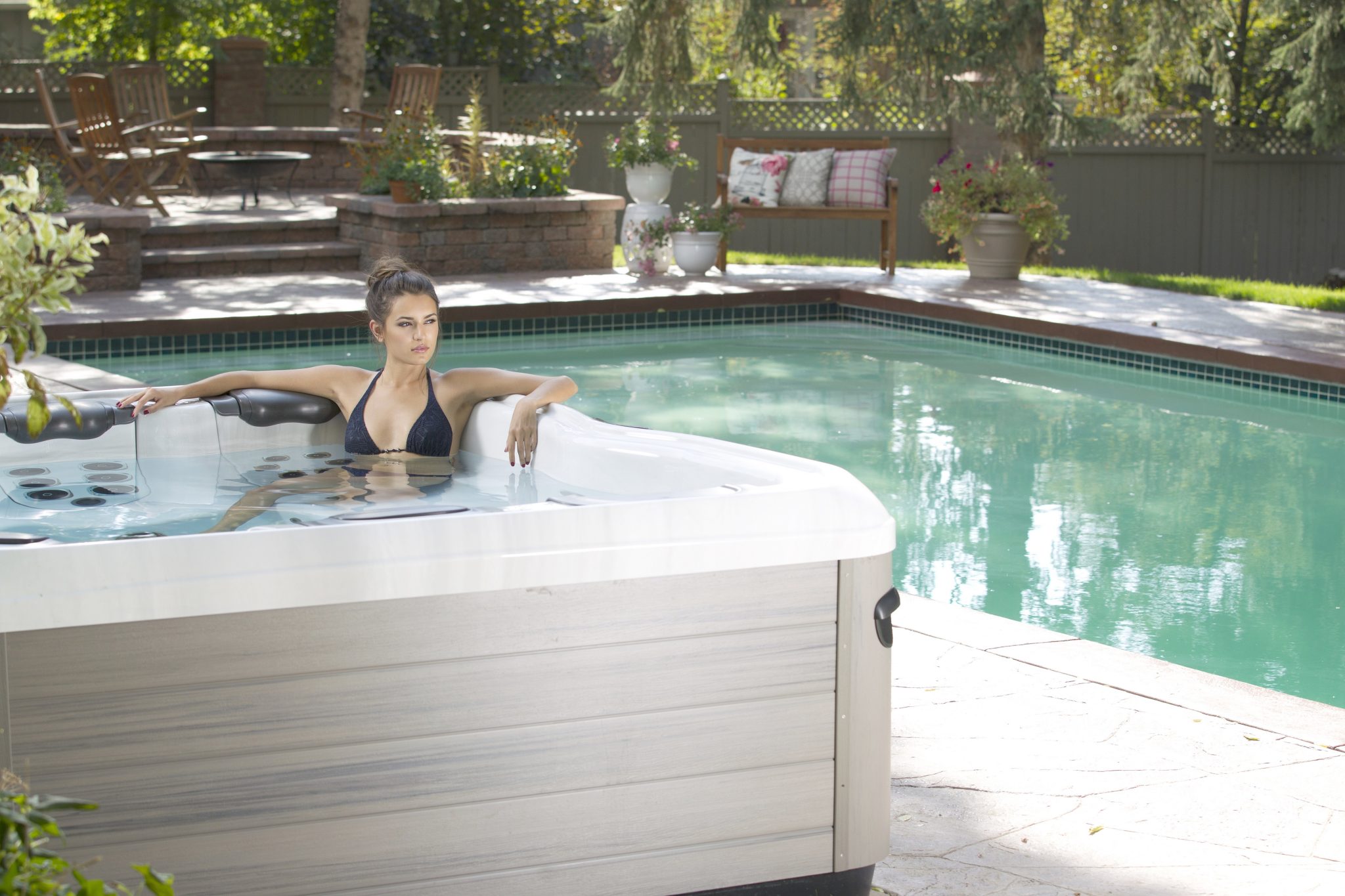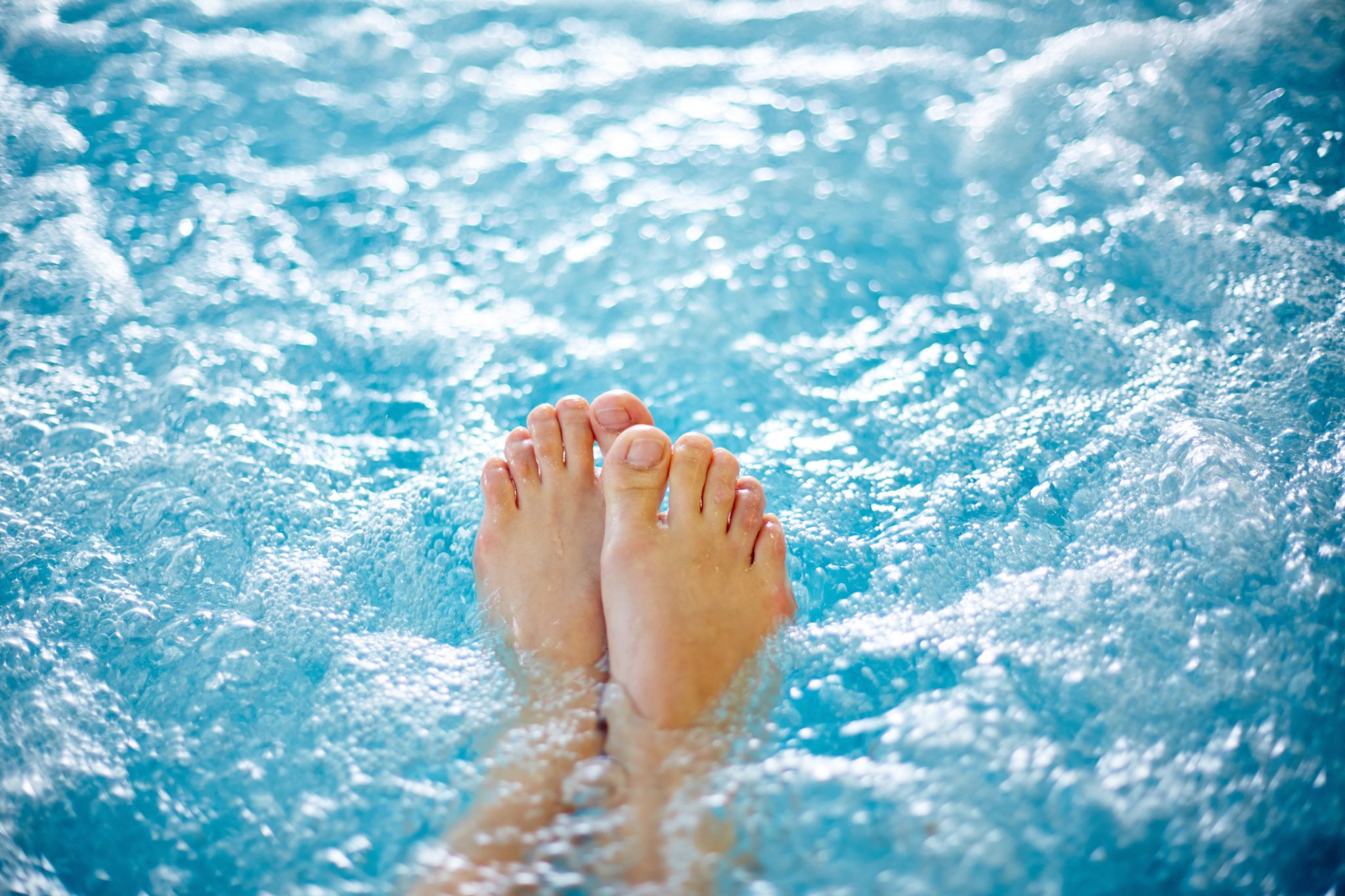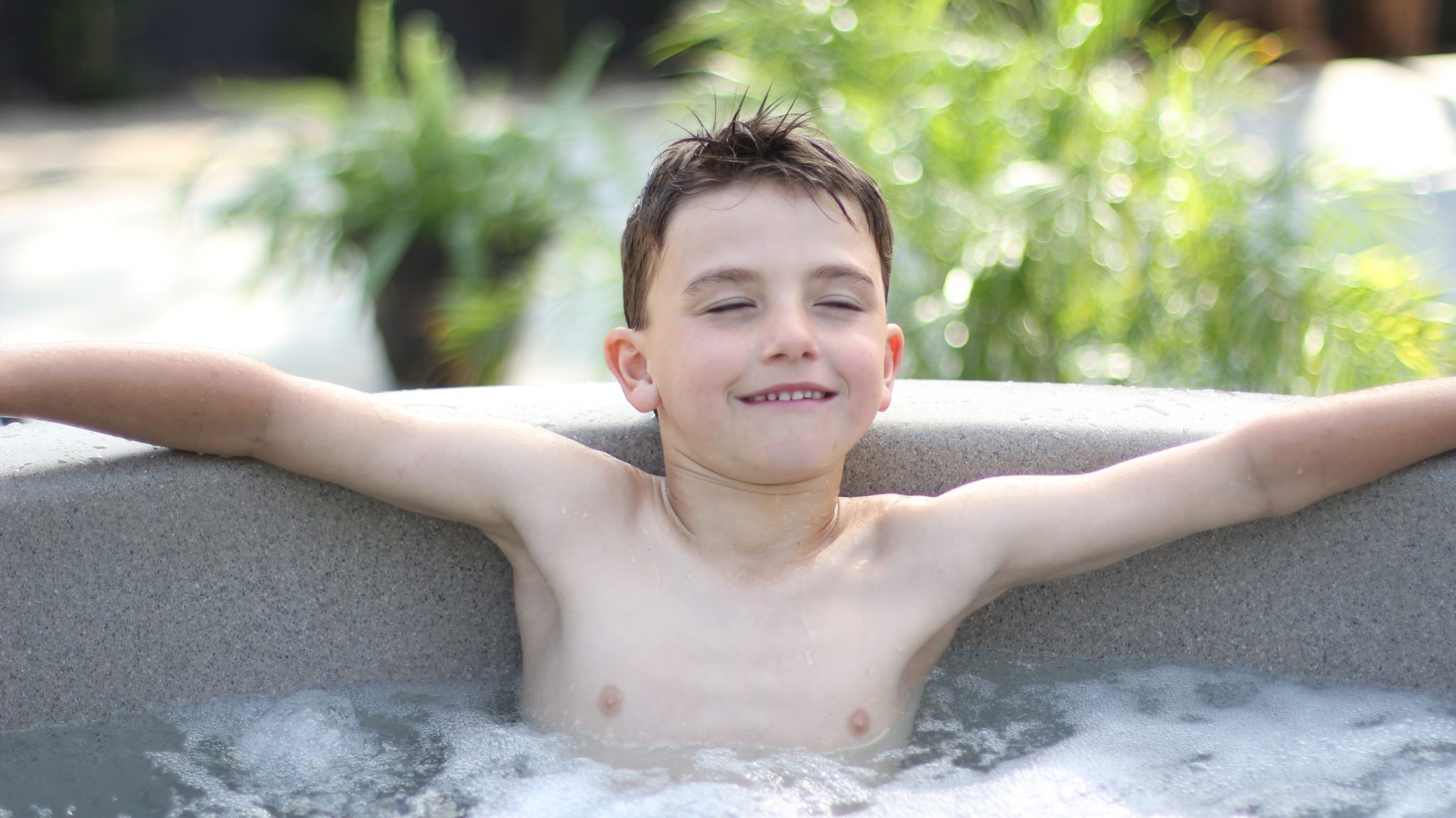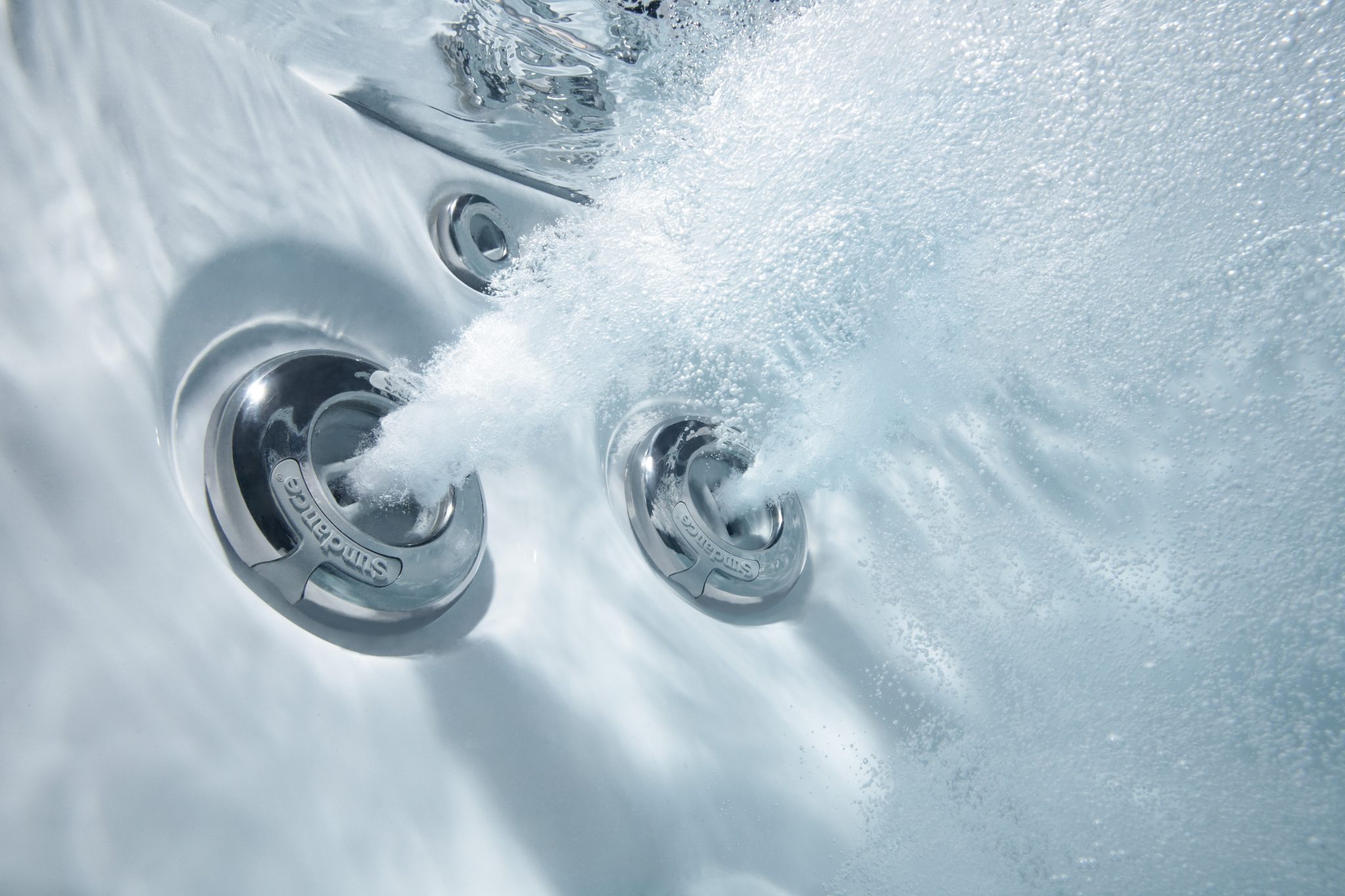Here are a few unique factors you should know about spas and what basic tasks will give you better-looking water and fewer problems.
Circulation
The force and velocity of aerated water keeps water moving so the filter can remove suspended debris. Circulation also ensures that the chemicals are thoroughly distributed. Dead spots are usually not as prevalent in a spa as they are in a pool.
Filtration
With the dirt, sweat and oils released in a spa, good filtration is essential. Cartridge filters are the typical choice and because of the increase in the amount of filterable debris, the filter should be regularly cleaned with a garden hose or chemically cleaned at refill.
Cleaning
Cleaning a spa involves several aspects of care, including the removal of obvious debris by skimming or vacuuming, and removal of body oils that are rinsed off bathers. Also, be sure to wipe surfaces after heavy use.
Chemical Treatments
Bacteria and algae grow much faster in a spa than in a pool. As a result, spa owners need to follow a regular and complete chemical treatment routine. Spa chemistry includes water balance, sanitizer and oxidizer applications.
Testing
Fewer gallons of water mean changes in water balance happen faster. Add to this the aerated water, increased water temperature, and the heavier bather loads, and it’s easy to see the importance of regular testing. Adjust the balance and sanitizer levels as needed.
Drain & Refill
Sooner or later, the water reaches a point where it just gets “worn out” from the bather load. When the water looks bad, smells bad, and feels bad it’s time for a change. It is recommended that you drain and refill your spa with fresh water approximately every 3 months.
Rinse & Repeat
It’s always a good idea to rinse off before use to remove lotions and soaps in order to reduce the number of contaminants that could potentially cause poor water conditions. When done soaking, rinse off again to ensure that nothing lingers to potentially irritate your skin or eyes.
Covers
Keep spa covered when not in use to prevent debris from getting in the water. After extended covered time, allow the spa to “breathe” a bit before getting in so that the trapped vapors and condensation can dissipate.



